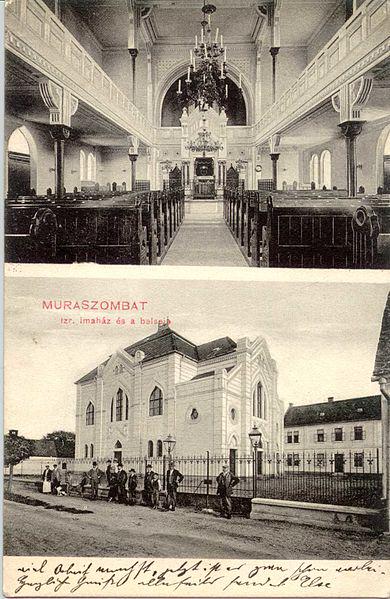
The local Jews were long known as traders and shopkeepers and they contributed substantially to the area’s prosperity. For a long time, however, they lacked a dedicated place of worship. A makeshift temple was established in the 18th century, but it was set up in a private home. It wasn’t until 1860 that a synagogue was built in the town, but over the following few decades, it proved to be two small for the thriving community.
In 1908, Lipót Baumhorn, an architect who had designed several synagogues throughout Hungary, was brought in to design a new synagogue in Murska Sobota. The result was a picturesque building typical of Hungarian Jewish temples that drew heavily on Moorish and Oriental designs.
The synagogue helped usher in an era of lively intellectual and religious activity in Murska Sobota. The rabbi at the time, Lazar Roth, accumulated a large personal library, and became well-known for his spirited philosophical lectures and debates.
The arrival of World War II changed everything. The Hungarian occupation authorities gathered Jews in the synagogue before deporting them to concentration camps. Lazar Roth died in Auschwitz, and most of his erstwhile congregation never returned from the camps.
After the war, the synagogue found itself without a congregation, and the newly installed Communist regime – mostly hostile to religion --, decided to demolish the temple. It was torn down in 1954 and replaced with an apartment building.
Today, Prekmurje’s Jewish community is, for the most part, just a memory, but it is also a vital part of the province’s history; it lives on not just in books, but also in the nickname for the building built on the site of the synagogue – still known as the “Jewish Block.” Next to the building, a monument unveiled in 2014 serves as a reminder to the Jews of Murska Sobota who never returned from Nazi concentration camps.

































































